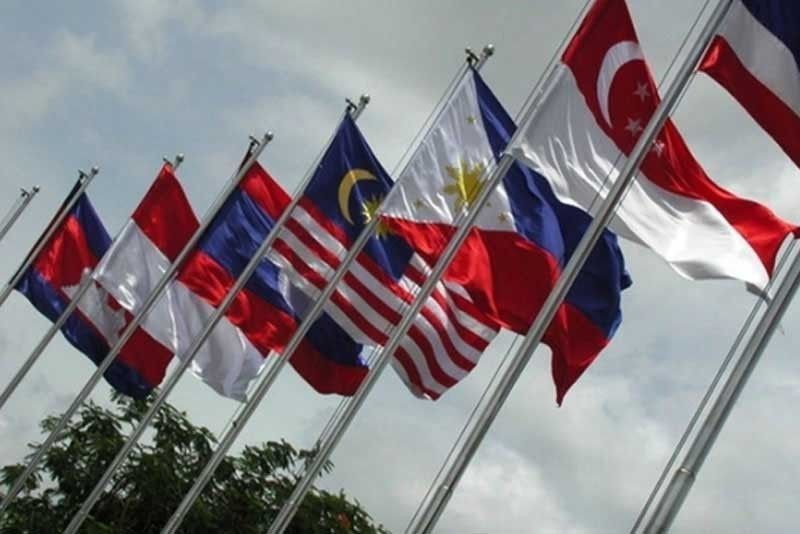US backs open, rules-based ASEAN growth

MANILA, Philippines — The United States has stressed the importance of open and rules-based economic growth, in contrast to what it describes as opaque and predatory business practices of Chinese state-owned firms such as the China Communications Construction Co.
At the Association of Southeast Asian Nations-US Foreign Ministers’ meeting recently, US Secretary of State Michael Pompeo reaffirmed America’s support for ASEAN’s role at the heart of the Indo-Pacific.
The top US diplomat called on Southeast Asian countries to review ties with Chinese state-owned enterprises, stepping up pressure on Beijing over territorial disputes in the South China Sea.
In a statement, “The Enduring US Commitment to ASEAN,” Pompeo said the ASEAN Outlook for the Indo-Pacific and the US Indo-Pacific Strategy share a respect for sovereignty, the rule of law, transparency, openness and inclusivity.
The US underscored its commitment to speak out in the face of the Chinese Communist Party’s (CCP) escalating aggression and threats to sovereign nations’ ability to make free choices.
“We stand with our ASEAN partners as we insist on the rule of law and respect for sovereignty in the South China Sea, where Beijing has pursued aggressive campaigns of coercion and environmental devastation,” Pompeo said.
He added that the US also stands for transparency and respect in the Mekong region, where the CCP has abetted arms and narcotics trafficking and unilaterally manipulated upstream dams, exacerbating an historic drought.
The US, he said, stands with ASEAN partners in combating COVID-19 and enabling regional economic recovery.
Building on the US-ASEAN Health Futures initiative and the over $87 million in US government assistance to fight COVID-19, including the delivery so far of 850 ventilators to Indonesia and 100 to the Philippines, Pompeo announced an additional USAID support for One Health Workforce-Next Generation to help ASEAN countries prepare for, prevent, detect, and respond to public health emergencies.
Additionally, the US Centers for Disease Control and Prevention is expanding its engagement through a new CDC regional office in Hanoi and the US-ASEAN Smart Cities Partnership is launching initiatives in health, along with new agreements in water management and transportation.
To continue to promote economic prosperity in the region, he said the US, through the US Development Finance Corp., is investing in needed infrastructure.
The US will also co-host with Vietnam the third Indo-Pacific Business Forum to foster millions of dollars in US investment in an “open, transparent, and rules-based manner.”
As the US expands its strategic partnership with ASEAN, Pompeo emphasized that nations must also address the critical challenges facing the region.
The US continues to urge North Korea to end provocations, abide by its obligations under the United Nations Security Council Resolutions (UNSCRs), and engage in sustained negotiations to achieve complete denuclearization.
“We urge ASEAN countries to continue efforts to fully implement their obligations under the UN resolutions,” he added.
Washington expressed concerns over the continued violence in Myanmar’s Rakhine state and called for a cessation of fighting, negotiated solution and deepened efforts to address root causes of violence to facilitate the dignified, safe, voluntary and sustainable return of internally displaced people (IDPs) and refugees.
Pompeo reiterated that the CCP’s imposition of draconian national security legislation has obliterated Hong Kong’s autonomy.
The US urged all governments, parties and institutions around the world to assess the risk and reconsider business deals with the “predatory” Chinese state-owned enterprises including the company central to the militarization and coercion in the South China Sea.
The State Department and Commerce Department said the blacklisting of Chinese companies and Pompeo’s announcement on the imposition of visa restrictions on Chinese individuals, including executives of state-owned enterprises responsible for Beijing’s reclamation, construction and militarization of disputed outposts and coercion of Southeast Asian claimants are in line with the new US policy on Chinese maritime claims in the South China Sea.
The Commerce Department announced that it added 24 of Beijing’s state-owned enterprises, including subsidiaries of the China Communications Construction Co. – CCCC – to the entity list for their role in these South China Sea activities.
Pompeo announced the imposition of visa restrictions on nationals, including executives of state-owned enterprises, responsible for Beijing’s reclamation, construction, or militarization of disputed outposts and coercion of Southeast Asian claimants.
- Latest
- Trending































